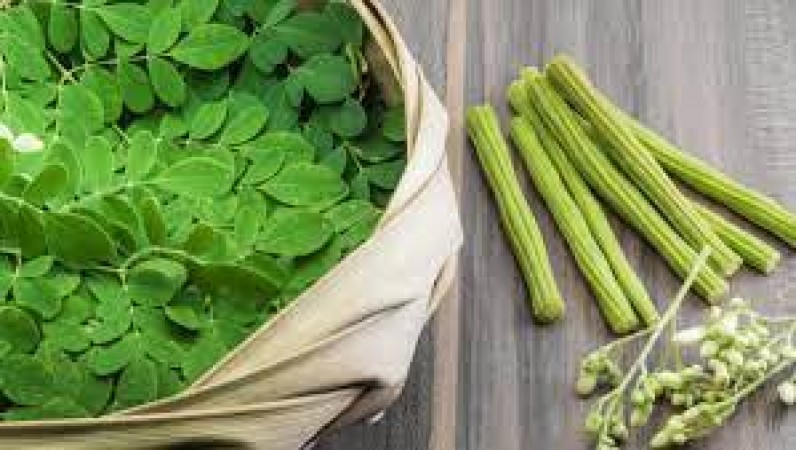
Hailed as a superfood in recent times, Moringa leaves, derived from the Moringa oleifera tree, have garnered significant attention for their plethora of health benefits and versatile applications. Packed with essential nutrients, vitamins, and antioxidants, these vibrant green leaves offer a natural remedy for various ailments and serve as a valuable addition to culinary creations. Let's delve deeper into the myriad uses and remarkable properties of Moringa leaves, unlocking their potential to promote overall well-being and vitality.
Nutritional Riches Within Moringa Leaves
A Nutrient Powerhouse: Moringa leaves boast an impressive nutritional profile, encompassing a wide array of essential nutrients vital for optimal health. These include vitamins such as vitamin A, vitamin C, vitamin E, and vitamin K, along with an abundance of minerals like calcium, potassium, iron, and magnesium. Additionally, Moringa leaves are rich in protein, containing all nine essential amino acids, making them a valuable source of plant-based protein for vegetarians and vegans.
Antioxidant Arsenal: One of the standout features of Moringa leaves is their high antioxidant content. These antioxidants, including flavonoids, polyphenols, and beta-carotene, help combat oxidative stress and neutralize harmful free radicals in the body. By doing so, they contribute to reducing inflammation, protecting against chronic diseases, and promoting cellular health.
Harnessing the Healing Power of Moringa Leaves
Immune Boosting Benefits: With their potent blend of vitamins and antioxidants, Moringa leaves play a pivotal role in supporting a robust immune system. Regular consumption of Moringa leaves can enhance immune function, helping the body fend off infections, viruses, and other pathogens more effectively. By fortifying the body's natural defense mechanisms, Moringa leaves contribute to overall resilience and well-being.
Promoting Digestive Health: Moringa leaves have been traditionally used to alleviate digestive issues and promote gastrointestinal health. Their natural fiber content aids in digestion and helps regulate bowel movements, preventing constipation and promoting a healthy gut microbiome. Additionally, Moringa leaves exhibit anti-inflammatory properties that can soothe digestive discomfort and alleviate symptoms of conditions such as gastritis and colitis.
Managing Blood Sugar Levels: Research suggests that Moringa leaves may offer significant benefits for individuals with diabetes or those looking to regulate blood sugar levels. Studies have shown that Moringa leaf extract can help lower blood glucose levels and improve insulin sensitivity, making it a valuable adjunctive therapy for diabetes management. By promoting better glycemic control, Moringa leaves offer hope for individuals striving to maintain healthy blood sugar levels.
Elevating Culinary Creations with Moringa Leaves
Versatile Culinary Ingredient: Beyond their health-promoting properties, Moringa leaves add a delightful burst of flavor and nutrition to various culinary creations. From soups and stews to salads and smoothies, these tender leaves can be incorporated into a myriad of dishes, imparting a mild, earthy flavor reminiscent of spinach or arugula. Whether used fresh, dried, or powdered, Moringa leaves lend themselves well to both savory and sweet recipes, enhancing their nutritional value and visual appeal.
Refreshing Moringa Leaf Tea: Another popular way to enjoy the benefits of Moringa leaves is by brewing them into a refreshing herbal tea. Moringa leaf tea boasts a mild, slightly nutty flavor profile and offers a caffeine-free alternative to traditional teas. Rich in antioxidants and nutrients, Moringa leaf tea makes for a soothing beverage that can be enjoyed hot or cold, providing a revitalizing boost to body and mind.
Cultivating Sustainability and Wellness
Environmental Impact: In addition to their nutritional and medicinal value, Moringa trees play a crucial role in environmental sustainability. These fast-growing trees thrive in diverse climates and require minimal water and resources to flourish, making them ideal for agroforestry initiatives and reforestation efforts. By cultivating Moringa trees, communities can mitigate soil erosion, enhance biodiversity, and promote sustainable land management practices, thereby contributing to environmental conservation and resilience.
Empowering Communities: The cultivation and utilization of Moringa leaves offer numerous socioeconomic benefits to communities around the world. From small-scale farmers to rural cooperatives, Moringa production provides a source of income, employment opportunities, and food security for individuals and families. By harnessing the economic potential of Moringa leaves, communities can improve livelihoods, foster entrepreneurship, and enhance overall well-being.
Embracing the Green Revolution: As the demand for natural, plant-based remedies and sustainable food sources continues to rise, Moringa leaves stand poised to play a pivotal role in the global health and wellness landscape. With their unrivaled nutritional potency, culinary versatility, and ecological benefits, Moringa leaves represent a beacon of hope for a healthier, more sustainable future. By harnessing the power of nature's green treasure, we can nourish our bodies, nurture our planet, and cultivate a brighter tomorrow for generations to come.
Leo people's day is going to be something like this, know your horoscope
People of these zodiac signs should be conscious about their health today, know your horoscope